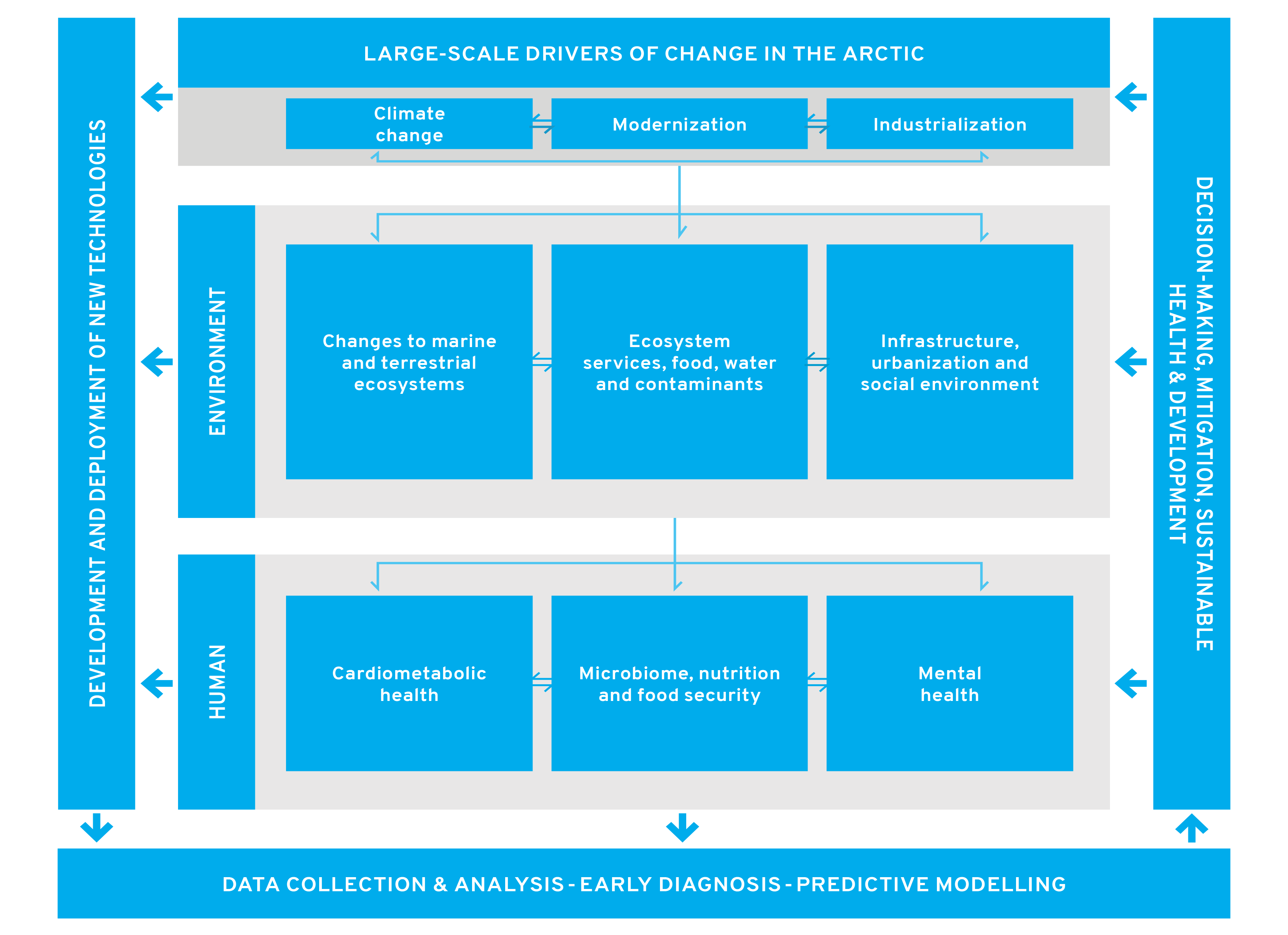Sentinel North interdisciplinary framework
Accelerating climate change and socio-economic development in Arctic and sub-Arctic regions is a complex issue that calls for innovative research initiatives and integrated approaches. In order to generate the knowledge needed to monitor the transformation of these regions and be better prepared, Université Laval implemented its Sentinel North strategy.
Sentinel North stemmed from a convergence of strategic areas of research at Université Laval, including Northern and Arctic science, optics-photonics, cardiometabolic health and the microbiome, as well as neuroscience. The strategy was firmly rooted in a conceptual framework and an ambitious research program, which touches at once on the environment, health and innovation. It evolved rapidly, becoming the expression of a collective mission encompassing a broad research community at Université Laval, its centres and its institutes who all share the same vision, as well as a network of national and international collaborators and strategic partners.
Through various funding initiatives, Sentinel North fostered the creation of research teams and projects that addressed the different fundamental axes of its conceptual framework, including developing and deploying new cutting-edge technology and mathematical tools (prognostic models). Sentinel North also provided an outstanding training environment for the next generation, by putting students at the centre of an innovative and interdisciplinary scientific approach.
Sentinel North conceptual framework
All of Sentinel North’s research, training and partnership initiatives were undertaken using the following conceptual framework:






